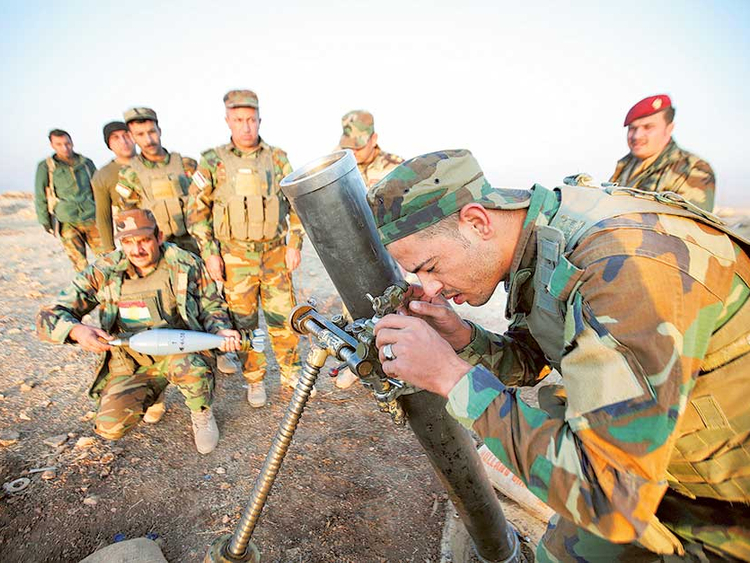Dubai: Countries in the Middle East can look forward to a rocky year ahead of international politics and stalled economic activity due to a new Trump presidency as oil prices hover between $50-$60 (Dh183.65-Dh220.38) per barrel and terrorism continues to be exported outside of the Middle East, suggests a new report released by the Arab Strategy Forum being held in Dubai on Wednesday.
President-elect Donald Trump’s first year in office will “erode US global leadership in 2017”, said authors of the State of the World in 2017 report released on Tuesday with a prediction that there is a 70 per cent chance he will “impact on global politics”.
The report is part of a one-day Arab Strategy Forum which includes a high-level panel which will share its thoughts on the political landscape of the coming year.
Sharing the stage will be former British Prime Minister David Cameron and Leon Panetta, former director of the CIA and former US Secretary of Defence.
The Arab Strategy Forum was launched in 2001 under the patronage of His Highness Shaikh Mohammad Bin Rashid Al Maktoum, Vice-President and Prime Minister of the UAE and Ruler of Dubai, as a platform to foresee the future and identify potential economic and political trends globally and across the Arab world.
In the report, authors Eurasia Group stated that “numerous public statements by now president-elect Donald Trump will create uncertainty regarding the short-term future of US foreign policy, raising concerns about the US’ commitment to its role as leader of the post-World War II global order”.
That said, the report suggested that while “a Trump presidency may upset certain US allies concerned about the reliability of US commitments, policymakers in the region may find reassurance in the fact that the new administration is unlikely to completely and abruptly renege on historic relationships”.
In the face of a more protectionist presidency, the report predicted that “inflation will grow above 2 per cent in the US in 2017, thereby triggering a policy conundrum that may heighten the risk of domestic and global recession”.
Global growth for 2017 is not expected to exceed 4 per cent while trade is expected to be at around 3 per cent, said the report.
In the Middle East, the report said it believes terrorism attacks “will increase outside the Mena region in 2017” and that “contrary to common belief, territorial gains against the Islamic State (Daesh) in Syria and Iraq in 2017 will lead to more rather than fewer terrorist attacks. The world has already faced an uptick in IS (Daesh)-related attacks in 2015-2016, and this trend is unlikely to abate.”
Click here for the full report
The report suggested countries vulnerable to attacks include France, Belgium, the Netherlands, Germany, Italy, Indonesia, Malaysia, and Australia.
The report advised Middle East leaders “that the fight against IS (Daesh) will not end with its territorial defeat. They should consider whether increased attacks on countries external to the Mena region will reinforce or weaken these governments’ resolve to undertake cooperation aimed at tackling the group.”
Report authors advised leaders in the Mena region that in order to prevent an expansion of Daesh attacks outside Syria and Iraq in the coming year, a new regional approach is needed to stem the tide.
“Middle Eastern leaders should begin to think about supporting a regional movement for reform of Islamic religious thought. Radical Islamist organisations are destroying states in the Middle East, undermining trust between the different ethno-sectarian communities, and damaging the image of Arab states in the West, the report stated.













